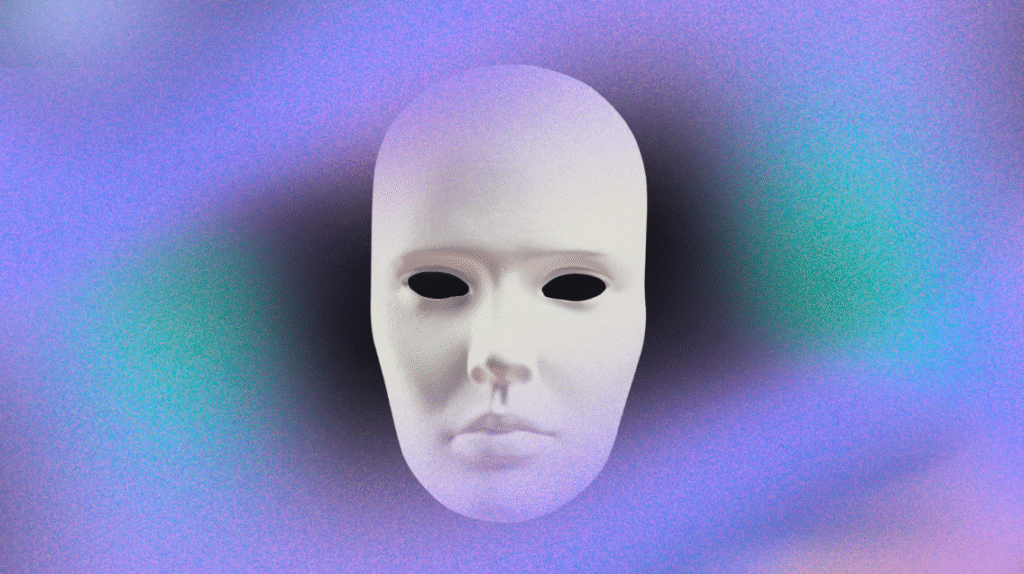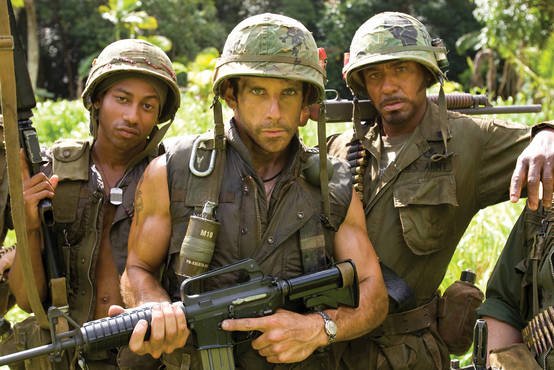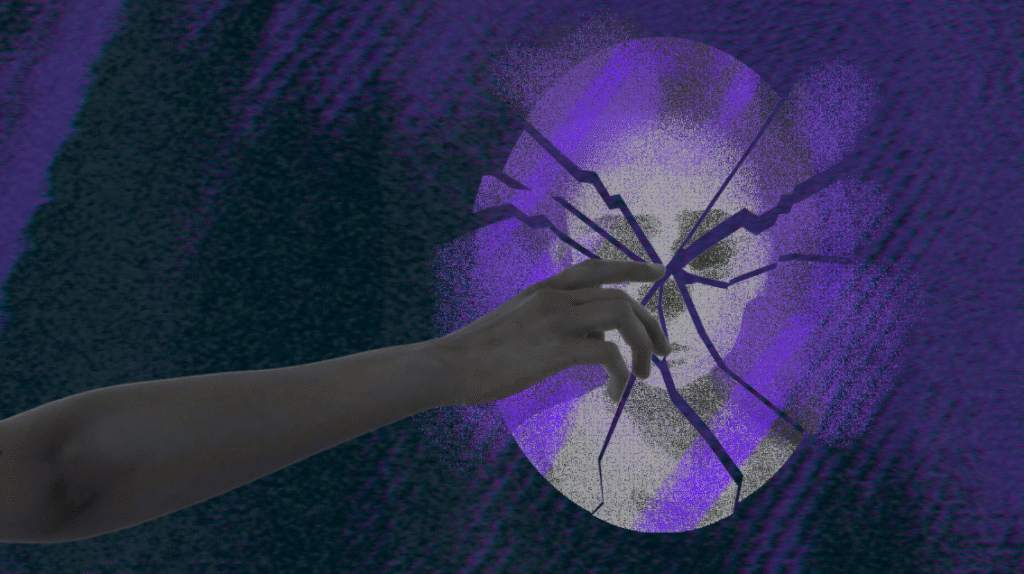We’re All Actors And We Don’t Even Know It
You probably couldn’t play certain roles as well as Brando. But Brando couldn’t play certain roles as well as you.

Table of Contents
Have you ever struggled to “act natural” in everyday life? To remain calm under pressure? Confident under stress? Indifferent under scrutiny? If “natural” is simply a state of being, why does it require so much effort? Why must we “act” as such?
Well, if you asked a social anthropologist, or an artist, they’d probably tell you that’s what it takes to communicate your thoughts, manage your emotions, and reveal parts of yourself essentially unknowable to the outside world—sometimes even to yourself. Welcome to the world of “dramaturgy” aka the study of life as theater.
Acting may seem like a glamorous job when you’ve “made it”. But in the wild, wild west of everyday life, it’s a survival mechanism.
According to sociologist Erving Goffman, behaving like your “self” as opposed to an “other” is not much different from the process of role-play and representation used in the performing arts. For professional actors, the line between “self” and “other” is intentionally blurred beyond the point of recognition, if only for a moment. Call it a useful delusion.
Yet there’s far more to professional acting than the pursuit of authenticity, just as there’s far more to acting in everyday life than the desire to deceive and manipulate others.
Acting, on camera or in everyday life, is ultimately the social, psychological, and physical process of inhabiting a role.
“I wanna be rich. Someone important… like an actor.” (The Matrix, Warner Bros.)
For professional actors, these roles may be fictional and largely discrepant with their personality off-camera or off-stage. This is similar to the way you and I play “off-beat” roles in exchange for social utility, such as pretending to be cleverer or dumber than we are in order to seduce, impress, avoid, or test someone. Every social interaction relies on the art of negotiation.
As with any social situation, it is your willingness to believe that makes it effective.
What is acting?

“I’m the dude playin’ the dude disguised as another dude.” (Tropic Thunder)
In film or theater, role-play is marked by the acknowledgment of make-believe. You enter the movie theater (or turn the lights off) with the intention to escape reality. Whether or not the actors succeed in helping you do so is another matter. The audience shows up with an appetite for fiction.
Similarly, professional actors learn to play complex roles by sometimes finding themselves within the character or imagining “the social facts” behind fictional circumstances. Whatever makes it easier to access and represent their character.
But whether you do it for the camera or to benefit in social situations, acting demands a deep understanding of human behavior. You act with intent and motive to elicit a response. Your technique may be simple, complicated, dangerous, or silly, but always playful and never bereft of imagination.
Like all great illusionists, great actors keep their tricks close to the chest.
What makes an actor “good” then isn’t necessarily the number of awards acknowledging it, but their ability to elicit an emotional response in a way that feels mysteriously unstaged—even if it’s the very product of calculated self-staging. In other words:
A good actor manages to convince you that what you see is “real”.
Of course, for folks like you and me, acting (good or bad) simply happens on auto-pilot mode. We don’t have a script typewritten in Courier 12 nor a fictional backstory for each role played out throughout our lives. We just do it moment by moment, day by day, within the range of our social, biological, and environmental limits. Except more than half the time we’re not even aware of the many parts we play, let alone how we play them.
Canadian-American sociologist Erving Goffman wrote about this exact phenomenon in The Presentation of Self in Everyday Life (1956), which birthed a new field of social study called dramaturgy, i.e., using theater as a metaphor to explain and understand social behavior. But a lot has changed since. Not just how we interact with each other, but where, why, and with whom.
All the world's a stage. So what?

Many of us react defensively to the idea of “playing a character” in life, but deem it worthy of knighthood when done exceptionally well on stage. So why the double-standard? In film and theater, a good actor is deemed an artist worthy of praise. It’s high-art. A craft. A service to society. Olivier. Hepburn. Streep. Day-Lewis. But in the “real” world, a good actor is often reduced to a morally questionable trickster. A liar. Imposter. Crook. Con-artist. Bundy. Madoff. Holmes. Belfort.
Beyond the gold-plated gates of Hollywood, acting becomes synonymous with manipulation and deceit. The craft becomes a vice—a danger to society.
This distinction is made worse by the cult of “celebrity” where success is measured in the currency of fame and fortune, as opposed to the average person who is motivated not by artistic genius nor the promise of stardom, but by the attainment of social utility.
The inability to view ourselves in the same light as professional actors is perhaps best illustrated in a 1973 interview by TV host Dick Cavett with acting legend Marlon Brando. In his first televised appearance since the Wounded Knee incident—for which he refused the Academy Award for Best Actor in The Godfather—Brando is asked why he downgrades acting as a profession to which he famously responds:
“Acting is a survival mechanism. We act to save our lives every day.”
Source: The Dick Cavett Show, YouTube
Not only does this interview capture the process of negotiation that drives performance in everyday life, but in Cavett’s case, also indicates the importance of self-delusion when constructing a “sincere” representation of self. Ultimately, the only way for the host to realize the depth of his own performance is for an “other” (in this case, his own guest) to break the fourth wall.
This often disruptive and uncomfortable process of revelation (captured poignantly in Cavett’s reaction: “I just feel like all my clothes have been taken off!”) is explained by Goffman in the following words:
“At one extreme, we find that the performer can be fully taken in by his own act; he can be sincerely convinced that the impression of reality which he stages is the real reality. When his audience is also convinced in this way about the show he puts on—and this seems to be the typical case—then for the moment, anyway, only the sociologist or the socially disgruntled will have any doubts about the ‘realness’ of what is presented.”
The Presentation of Self in Everyday Life, p. 10
This is self-deception at its finest and it explains why we struggle to notice it within ourselves, despite our best efforts. More importantly, I think it teaches us an important lesson about society, particularly our measure for authenticity in a world built on appearances:
Whether or not someone is in fact genuine or dishonest, or somewhere in between, becomes irrelevant when a majority is convinced of the sincerity of the performance.
This will become abundantly obvious with the rise of AI actors as they learn to read, replicate, and respond to human behavior with extraordinary nuance.
Why does any of this matter?

If acting is a fundamental part of human interaction, it’s important to understand how and why we do it, especially as it pertains to our survival. What’s truly bizarre today is that we tend to act in the absence of a physical audience. The show goes on even when we’re all alone.
This is concerning for a number of reasons, especially when you consider it in the context of a backstage. Goffman described the backstage in everyday life as: “a place, relative to a given performance, where the impression fostered by the performance is knowingly contradicted as a matter of course […] Here the performer can relax; he can drop his front, forgo speaking his lines, and step out of character” (p. 69). Bear in mind: this was written in the sixties before the advent of social media and smartphones.
Today the backstage, as we know it, is going extinct.
As face-to-face interactions are replaced by screen-to-screen interactions, we now perform at an unprecedented length of time without a designated space for creative incubation, critical thinking, and self-reflection (the same “backstage” clearly still distinguishable to professional actors). This is particularly obvious in work-from-home settings and social media where the line between public and private erodes, cannibalizing the self for a longer shelf-life.
We’re never alone, even when we think we are. An invisible audience follows us into our most sacred space, demanding our attention long after the curtain goes down.
What roles are we playing in our personal and professional lives, and what lies are we telling ourselves to sustain a fiction that doesn’t serve us?
Maybe it’s time to break the fourth wall and find out.
*****
Last updated: June 5, 2025
